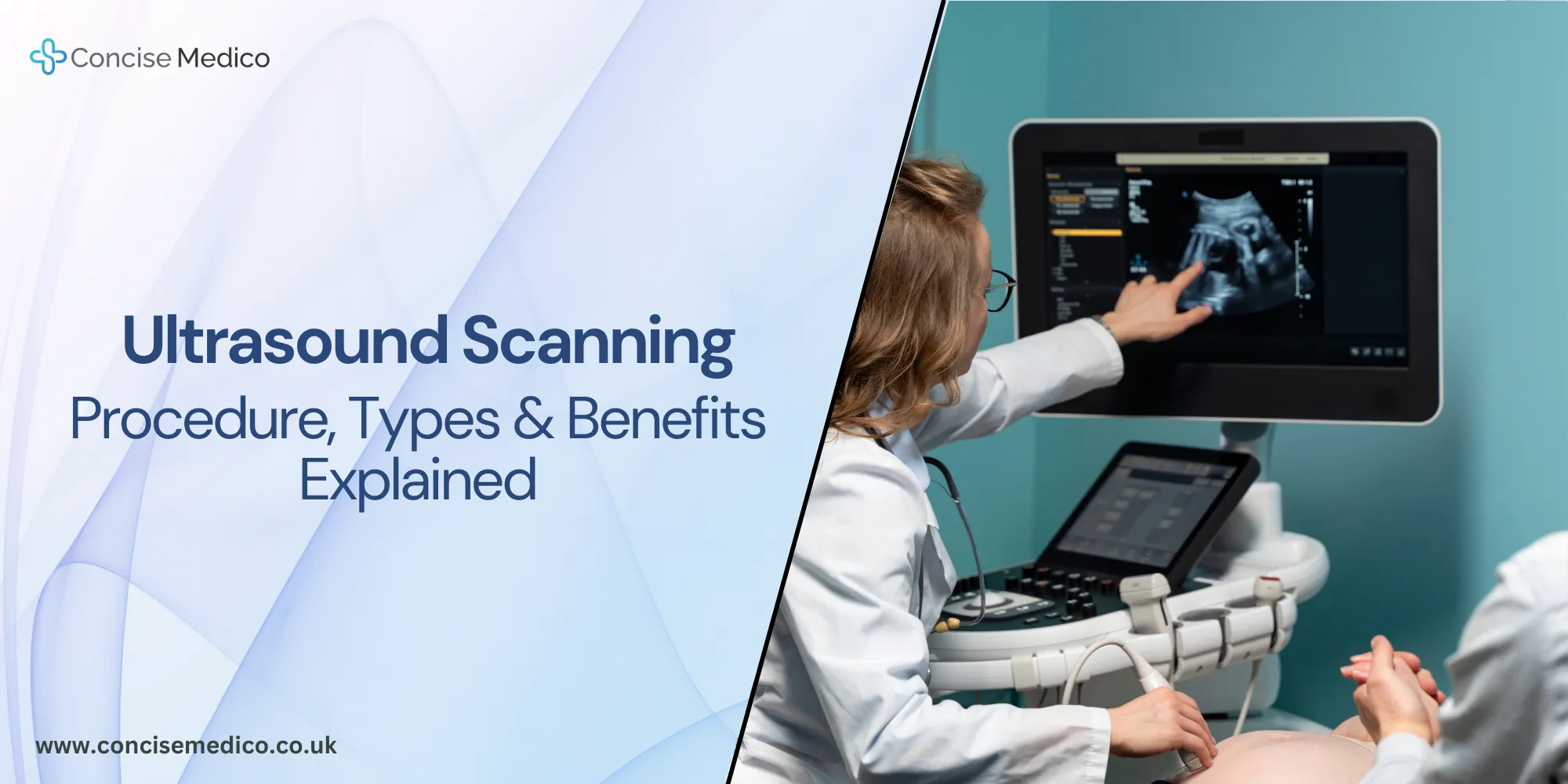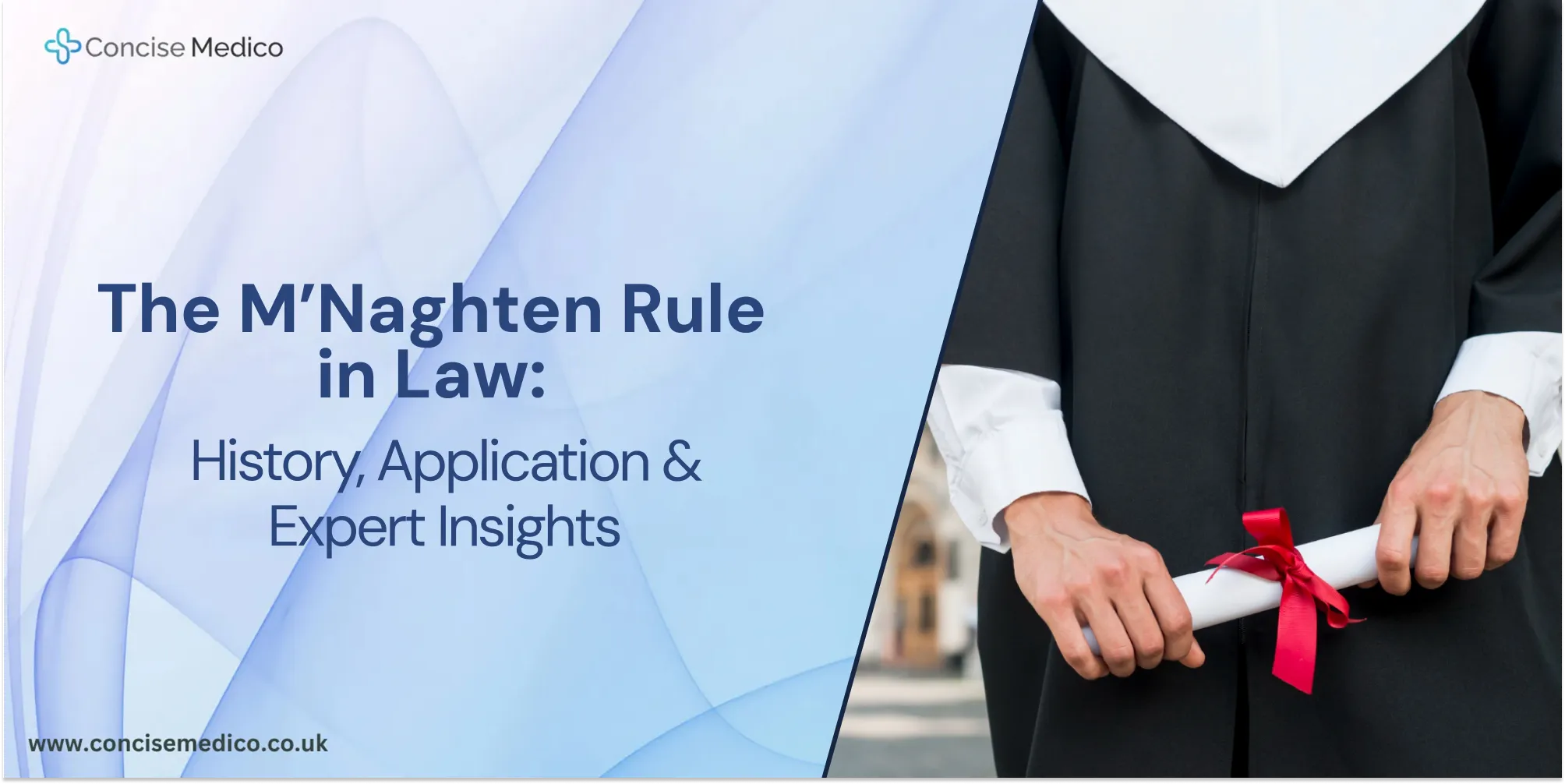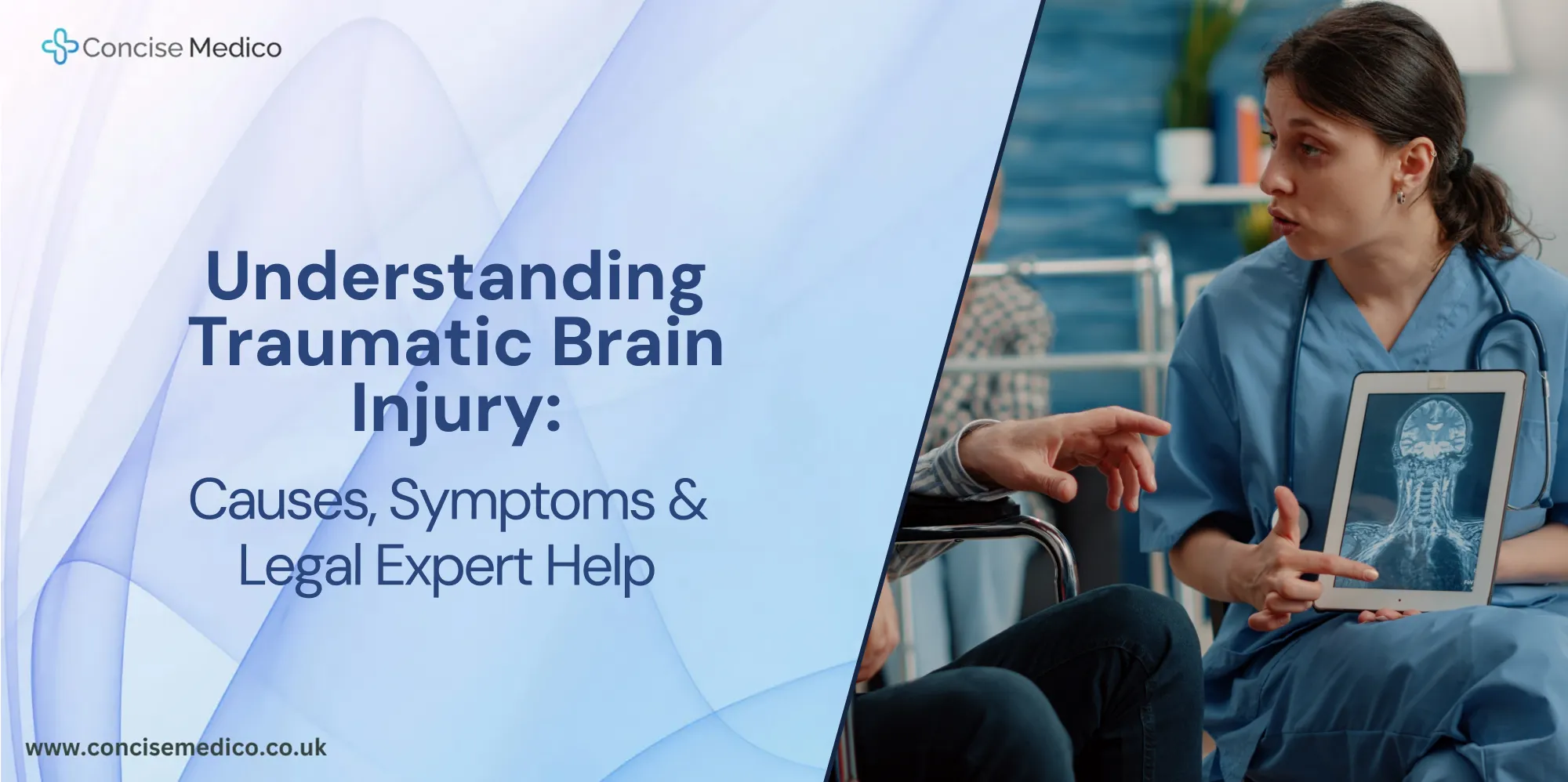TABLE OF CONTENT
- Types of Insanity Defense
- Understanding the Legal Standard of Insanity Defence
- Legal Insanity vs Medical Insanity
- Criteria for the Insanity Defence
- Current Law: Criminal Procedure (Insanity) Act 1964
- How is Insanity Proven in Court?
- Reforms and Criticism of the Insanity Defence
- Why Expert Evidence Matters
- FAQs
A person receiving the insanity defence under UK criminal law will not be guilty by reason of insanity because their extreme mental health illness existed during the crime (this is known as an insanity plea). This rule tells us when a person is legally insane.
The insanity law states that:
Where on a trial for murder the accused contends—
(a) that at the time of the alleged offence he was insane so as not to be responsible according to law for his actions; or
(b) that at that time he was suffering from such abnormality of mind as is specified in subsection
Criminal Procedure (Insanity) Act 1964,
If someone passes this legal test, they might escape punishment. This happens because they didn’t have the mental ability to understand their actions. This is known as the mental illness defence or the insanity defence.
Types of Insanity Defense
1. The M’Naghten Rule
The court asks if the defendant knew right from wrong when they acted. If they didn’t understand what they were doing, they can be found legally insane.
2. The Irresistible Impulse Test
This rule asks if a mental disorder robbed them of self-control. Even if they knew right from wrong, an uncontrollable urge tied to illness could excuse their behaviour.
3. The Model Penal Code Test
This test combines both cognitive and volitional elements, asking if the defendant lacked substantial capacity to know right from wrong or to conform their behavior to the law. It offers a broader standard than M’Naghten or Irresistible Impulse tests. Many U.S. jurisdictions have adopted versions of this rule.
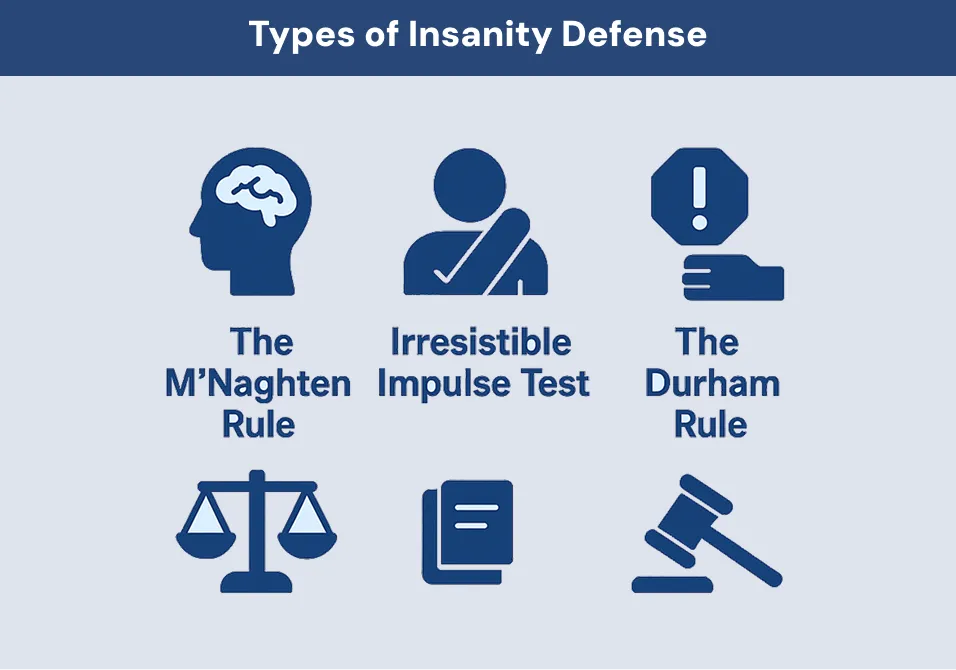
4. The Durham Rule
It is lso called the “product test,” it asks whether the crime was the product of a mental disease or defect. If the unlawful act would not have occurred “but for” the defendant’s mental illness, they may be found not guilty by reason of insanity. This test was largely replaced due to its broad scope.
Understanding the Legal Standard of Insanity Defence
UK law uses the M’Naghten Rule to decide if a person is legally insane. This rule says a person is insane if they:
- Had a disease of the mind (mentally unstable)
- Could not understand what they were doing
- Or did not know their act was against the law
No medical diagnosis is needed for this standard which means that the court focuses on whether the person met the M’Naghten criteria not on a formal psychiatric label. In fact, someone can be declared legally insane even if doctors disagree.
Legal Insanity vs Medical Insanity
Medical insanity and Legal insanity also known as criminal insanity are not identical. Courts focus on whether a “disease of the mind” impaired the accused’s reasoning, not on the diagnostic label itself.
You can understand this from different cases examples mentioned below:
R v Kemp (1956)
Facts: The defendant suffered from arteriosclerosis.
Ruling: Although this was a physical condition, the Court held it could amount to a “disease of the mind” because it affected his reasoning.
R v Hennessy (1989)
Facts: A diabetic man failed to take his insulin and, in a hyperglycaemic state, stole a car.
Ruling: The Court found that his untreated diabetes was a “disease of the mind” and therefore rendered him legally insane.
So, legal insanity includes both mental and physical conditions that affect the mind.
Criteria for the Insanity Defence
Under the M’Naghten Rule, an accused must satisfy two limbs to establish legal insanity.
1. Loss of Reason
To use the insanity defence, the person must have lost the power to reason. Being confused or forgetful is not enough. They must not understand the nature of the act or that it is wrong.
R v Sullivan (1984)
This case established that a “disease of the mind” can arise from an internal condition impairing mental faculties. The House of Lords held that epilepsy qualified because it disrupted the defendant’s reasoning, demonstrating a true loss of reason.
2. Awareness of Legal Wrongdoing
The key test is whether the person knew their action was against the law; moral wrongfulness is irrelevant. The law only asks: did they know it was illegal? If they understood the legal nature of their conduct, the insanity defence will fail.
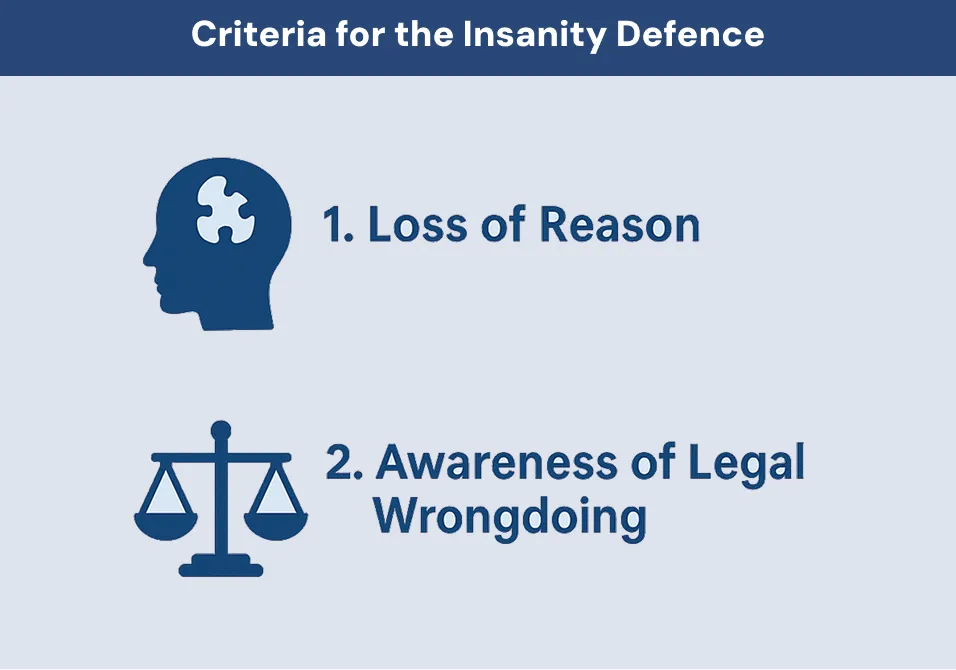
R v Windle (1952)
In the case of R v Windle, a man gave his wife too many pills and said, “I suppose they’ll hang me for this.” That statement showed he knew what he did was legally wrong, so the court rejected the insanity plea uk.
If a person knows the legal meaning of their actions, the insanity defence UK doesn’t apply, even if they are not mentally well.
Read about famous insanity defence cases.
Current Law: Criminal Procedure (Insanity) Act 1964
The Criminal Procedure (Insanity) Act 1964 changed how courts deal with insanity cases. The law states that if a person cannot:
- Understand the charges
- Tell right from wrong legally
- Speak with their lawyer
Then they may be found “unfit to plead.”
This law gives judges more options, like treatment in a hospital. In murder cases, patients need to be held in hospitals.
This Act remains the backbone of the insanity defence today.
How is Insanity Proven in Court?
A court often needs expert psychiatric reports to back the claim. These reports explain the person’s mental state at the time of the crime. Courts usually depend on two medical experts. Both must agree the accused fits the M’Naghten Rule. However, a diagnosis of a mental illness is not enough. The expert must connect the mental condition to the crime. They should explain how it influenced reasoning.
The court asks if the defendant knew right from wrong when they acted. If they didn’t understand what they were doing, they can be found legally insane. The defendant bears the burden of proof and must show, on the balance of probabilities, that their mind was affected at the time. They need solid medical reports and expert testimony to meet this requirement. These strict rules are hard to satisfy, making the insanity plea in the UK difficult to win.
Reforms and Criticism of the Insanity Defence
Legal experts and psychiatrists have long debated the current test. Many say it is too narrow and outdated. Critics argue that:
- It ignores advances in mental health science
- It focuses too much on legal terms instead of real conditions.
- It does not cover some disorders like personality disorders or PTSD
Some believe the defense is not used enough. This is due to stigma and a lack of public understanding.
Why Expert Evidence Matters
Using the insanity defence in court is a complex task. It needs expert medical input and legal skill. For cases of criminal insanity, rely on those who know the law and mental health.
At Concise Medico, our HCPC-registered expert witnesses offer unbiased opinions. Our focus is on psychiatric assessments, criminal cases, and expert court reports.
We can help, whether you need a mental illness defence or want to know if someone is unfit to plead.
FAQs
A person receiving the insanity defence under UK criminal law will not be guilty by reason of insanity because their extreme mental health illness existed during the crime (this is known as an insanity plea). This rule tells us when a person is legally insane.
The insanity law states that:
Where on a trial for murder the accused contends—
(a) that at the time of the alleged offence he was insane so as not to be responsible according to law for his actions; or
(b) that at that time he was suffering from such abnormality of mind as is specified in subsection
Criminal Procedure (Insanity) Act 1964,
If someone passes this legal test, they might escape punishment. This happens because they didn’t have the mental ability to understand their actions. This is known as the mental illness defence or the insanity defence.
Types of Insanity Defense
1. The M’Naghten Rule
The court asks if the defendant knew right from wrong when they acted. If they didn’t understand what they were doing, they can be found legally insane.
2. The Irresistible Impulse Test
This rule asks if a mental disorder robbed them of self-control. Even if they knew right from wrong, an uncontrollable urge tied to illness could excuse their behaviour.
3. The Model Penal Code Test
This test combines both cognitive and volitional elements, asking if the defendant lacked substantial capacity to know right from wrong or to conform their behavior to the law. It offers a broader standard than M’Naghten or Irresistible Impulse tests. Many U.S. jurisdictions have adopted versions of this rule.

4. The Durham Rule
It is lso called the “product test,” it asks whether the crime was the product of a mental disease or defect. If the unlawful act would not have occurred “but for” the defendant’s mental illness, they may be found not guilty by reason of insanity. This test was largely replaced due to its broad scope.
Understanding the Legal Standard of Insanity Defence
UK law uses the M’Naghten Rule to decide if a person is legally insane. This rule says a person is insane if they:
- Had a disease of the mind (mentally unstable)
- Could not understand what they were doing
- Or did not know their act was against the law
No medical diagnosis is needed for this standard which means that the court focuses on whether the person met the M’Naghten criteria not on a formal psychiatric label. In fact, someone can be declared legally insane even if doctors disagree.
Legal Insanity vs Medical Insanity
Medical insanity and Legal insanity also known as criminal insanity are not identical. Courts focus on whether a “disease of the mind” impaired the accused’s reasoning, not on the diagnostic label itself.
You can understand this from different cases examples mentioned below:
R v Kemp (1956)
Facts: The defendant suffered from arteriosclerosis.
Ruling: Although this was a physical condition, the Court held it could amount to a “disease of the mind” because it affected his reasoning.
R v Hennessy (1989)
Facts: A diabetic man failed to take his insulin and, in a hyperglycaemic state, stole a car.
Ruling: The Court found that his untreated diabetes was a “disease of the mind” and therefore rendered him legally insane.
So, legal insanity includes both mental and physical conditions that affect the mind.
Criteria for the Insanity Defence
Under the M’Naghten Rule, an accused must satisfy two limbs to establish legal insanity.
1. Loss of Reason
To use the insanity defence, the person must have lost the power to reason. Being confused or forgetful is not enough. They must not understand the nature of the act or that it is wrong.
R v Sullivan (1984)
This case established that a “disease of the mind” can arise from an internal condition impairing mental faculties. The House of Lords held that epilepsy qualified because it disrupted the defendant’s reasoning, demonstrating a true loss of reason.
2. Awareness of Legal Wrongdoing
The key test is whether the person knew their action was against the law; moral wrongfulness is irrelevant. The law only asks: did they know it was illegal? If they understood the legal nature of their conduct, the insanity defence will fail.

R v Windle (1952)
In the case of R v Windle, a man gave his wife too many pills and said, “I suppose they’ll hang me for this.” That statement showed he knew what he did was legally wrong, so the court rejected the insanity plea uk.
If a person knows the legal meaning of their actions, the insanity defence UK doesn’t apply, even if they are not mentally well.
Read about famous insanity defence cases.
Current Law: Criminal Procedure (Insanity) Act 1964
The Criminal Procedure (Insanity) Act 1964 changed how courts deal with insanity cases. The law states that if a person cannot:
- Understand the charges
- Tell right from wrong legally
- Speak with their lawyer
Then they may be found “unfit to plead.”
This law gives judges more options, like treatment in a hospital. In murder cases, patients need to be held in hospitals.
This Act remains the backbone of the insanity defence today.
How is Insanity Proven in Court?
A court often needs expert psychiatric reports to back the claim. These reports explain the person’s mental state at the time of the crime. Courts usually depend on two medical experts. Both must agree the accused fits the M’Naghten Rule. However, a diagnosis of a mental illness is not enough. The expert must connect the mental condition to the crime. They should explain how it influenced reasoning.
The court asks if the defendant knew right from wrong when they acted. If they didn’t understand what they were doing, they can be found legally insane. The defendant bears the burden of proof and must show, on the balance of probabilities, that their mind was affected at the time. They need solid medical reports and expert testimony to meet this requirement. These strict rules are hard to satisfy, making the insanity plea in the UK difficult to win.
Reforms and Criticism of the Insanity Defence
Legal experts and psychiatrists have long debated the current test. Many say it is too narrow and outdated. Critics argue that:
- It ignores advances in mental health science
- It focuses too much on legal terms instead of real conditions.
- It does not cover some disorders like personality disorders or PTSD
Some believe the defense is not used enough. This is due to stigma and a lack of public understanding.
Why Expert Evidence Matters
Using the insanity defence in court is a complex task. It needs expert medical input and legal skill. For cases of criminal insanity, rely on those who know the law and mental health.
At Concise Medico, our HCPC-registered expert witnesses offer unbiased opinions. Our focus is on psychiatric assessments, criminal cases, and expert court reports.
We can help, whether you need a mental illness defence or want to know if someone is unfit to plead.

